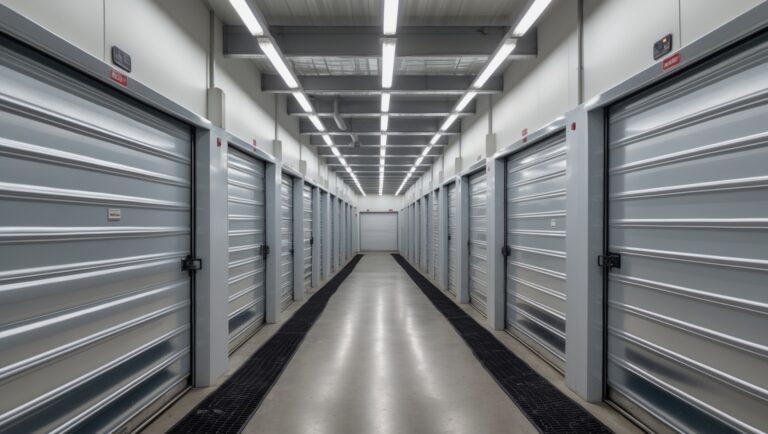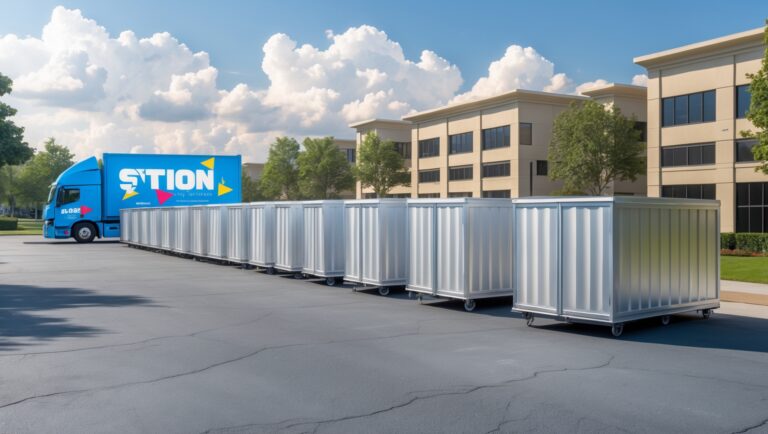Moving Company Compliance: Key Permits and Regulations Explained
Introduction: Why Compliance Matters for Moving Companies
Operating a moving company involves far more than loading boxes and driving trucks. The logistics industry is tightly regulated, and compliance with state, federal, and local requirements is not optional—it’s critical for survival and success. From securing the right permits to adhering to safety regulations and consumer protection laws, each piece of compliance impacts your ability to operate legally, gain client trust, and safeguard your business from costly penalties or shutdowns. For new and established moving businesses alike, understanding and maintaining compliance is an ongoing commitment. This guide breaks down the essential permits, licenses, and regulations every moving company must address, explains why they matter, and provides actionable steps to help you stay on the right side of the law while building a reputation for reliability and professionalism.
Understanding the Regulatory Landscape
Federal vs. State vs. Local Oversight
Moving companies face a layered web of regulations. The applicable rules depend on operational scope:
- Federal: Applies to interstate (state-to-state) moves. Governed by the Federal Motor Carrier Safety Administration (FMCSA).
- State: Applies to intrastate (within a single state) moves. Each state has its own agencies and requirements.
- Local: City or county permits and ordinances may also apply, especially for parking, loading zones, and business licensing.
Understanding which authorities regulate your business is the first step to proper compliance.
Federal Permits and Licenses for Moving Companies
1. USDOT Number
All moving companies that operate commercial vehicles transporting passengers or cargo across state lines must obtain a USDOT Number from the FMCSA. This unique identifier is used to monitor safety records, compliance reviews, and inspections.
2. Motor Carrier (MC) Authority
In addition to the USDOT number, interstate movers need an MC Number, also known as “Operating Authority.” This grants legal permission to transport household goods for hire across state lines. The application process involves proof of insurance and payment of fees.
3. BOC-3 Filing (Process Agent Designation)
FMCSA requires all interstate moving companies to file a BOC-3 Form, designating a process agent in each state where you operate. This person or company is authorized to receive legal documents on your behalf.
4. FMCSA Registration and Updates
FMCSA registration must be kept current, reflecting any changes in company name, address, or ownership. Failing to update records can result in fines or loss of operating authority.
State-Level Licensing and Permit Requirements
1. State DOT Registration
Many states require moving companies to register with their Department of Transportation (DOT), even for local moves. This may involve vehicle inspections, safety checks, and background screening of drivers.
2. State Business Licenses
Most states require a general business license to operate legally. This is separate from transportation-specific permits and may be required at the city or county level as well. Check with your Secretary of State or local government office for details.
3. Intrastate Authority
Some states issue a special “Household Goods Carrier” license for companies moving goods within state borders. This usually requires proof of insurance, background checks, and sometimes written exams or operational plans.
4. Weight and Fuel Permits
If your trucks exceed certain weight thresholds or cross state lines regularly, you may need International Registration Plan (IRP) plates and International Fuel Tax Agreement (IFTA) permits. These ensure proper registration and tax payments for heavy vehicles.
Local Permits and Ordinances
1. Parking and Loading Zone Permits
Many cities require a special permit to park moving trucks in certain neighborhoods or to reserve street space for loading and unloading. Failing to secure these can result in tickets, towing, or angry neighbors.
2. Home Occupation Permits
If you operate your moving company’s administrative office from home, some municipalities require a Home Occupation Permit. This ensures compliance with zoning laws and protects you from code violations.
3. Local Business Tax Receipts
Some cities and counties require a local business tax receipt (sometimes called an occupational license) for any business operating within their jurisdiction.
Insurance: A Core Compliance Requirement
1. Liability Insurance
Most states and the FMCSA require moving companies to carry:
- Automobile liability insurance (covers bodily injury and property damage caused by company vehicles).
- Cargo insurance (protects clients’ household goods during transit).
Failure to maintain adequate insurance can result in suspension or revocation of your license and significant financial exposure.
2. Workers’ Compensation Insurance
If you employ staff, workers’ compensation insurance is mandatory in most states to cover injuries sustained on the job. Check state-specific requirements for thresholds and exemptions.
Consumer Protection Laws and Disclosure Requirements
1. Written Estimates and Contracts
Federal law requires interstate movers to provide customers with a written estimate and a copy of the “Your Rights and Responsibilities When You Move” booklet. State laws may require similar disclosures for local moves.
2. Tariff Filing
Interstate movers must file a tariff with the FMCSA, outlining rates, charges, and services. Transparency is key to legal compliance and helps avoid disputes with customers.
3. Complaint and Claims Procedures
Companies must clearly explain procedures for filing complaints and claims for lost or damaged goods, both in contracts and on their websites.
Vehicle and Driver Compliance
1. Commercial Driver’s Licenses (CDLs)
Drivers operating vehicles over a certain weight (usually 26,001 pounds or more) need a Commercial Driver’s License. Ensure all drivers have valid, up-to-date CDLs with the correct endorsements for your fleet.
2. Vehicle Inspections and Maintenance
Both federal and state laws require regular vehicle inspections and maintenance logs. Keeping your fleet in compliance prevents accidents and avoids fines during roadside checks.
3. Hours of Service Regulations
Drivers must comply with hours-of-service rules limiting consecutive driving hours and requiring rest periods. Electronic Logging Devices (ELDs) are often mandatory to record this data.
Best Practices for Maintaining Compliance
1. Designate a Compliance Officer
Assign a staff member or manager to oversee regulatory compliance. This person should track renewal dates, regulatory changes, and conduct regular audits.
2. Maintain Comprehensive Records
- Licenses and permit copies
- Insurance certificates
- Vehicle maintenance and inspection logs
- Driver qualification files
- Tariffs and contracts
Organized recordkeeping is your best defense in the event of an audit or dispute.
3. Stay Informed About Regulatory Changes
Transportation laws evolve. Subscribe to industry newsletters, join trade associations, and regularly check FMCSA and state DOT websites for updates.
4. Train Staff Regularly
Every employee should understand the basics of compliance, from proper contract disclosures to safe driving practices. Ongoing training minimizes the risk of inadvertent violations.
Penalties for Non-Compliance
1. Fines and Fees
Operating without the proper licenses or insurance can result in fines ranging from hundreds to tens of thousands of dollars. Repeat offenders may face escalating penalties.
2. Suspension or Revocation of Authority
Regulatory agencies can suspend or permanently revoke your operating authority for serious or repeated violations, effectively shutting down your business.
3. Lawsuits and Civil Liability
Non-compliance increases your exposure to lawsuits from customers, employees, or other parties. Courts often show little sympathy for unlicensed or uninsured operators.
How to Apply for Permits and Stay Compliant
1. Research Requirements Thoroughly
Use official FMCSA, state DOT, and local government resources to determine exactly which permits and licenses you need. Don’t rely solely on third-party websites.
2. Prepare Required Documentation
Common documentation includes:
- Articles of incorporation or business registration
- Proof of insurance
- Vehicle information (VIN, weight, registration)
- Driver’s license and background checks
- Tariff schedule
3. Submit Applications and Fees
Most applications can be submitted online. Pay all required fees promptly and follow up to ensure processing is complete. Keep digital and hard copies of all submissions.
4. Set Up Compliance Calendars
Missing a renewal date is a common compliance pitfall. Use digital calendars or compliance software to track all permit, license, and insurance renewal dates.
Conclusion: Making Compliance Your Competitive Advantage
Staying compliant in the moving industry isn’t just about avoiding penalties—it’s a foundation for building a reputable, sustainable business. Customers increasingly demand transparency, professionalism, and safety. By maintaining up-to-date permits, licenses, and insurance, you demonstrate reliability and commitment to customer protection. Thorough compliance also helps you avoid costly interruptions, legal headaches, and reputational damage.
Even established moving companies can stumble if regulations change or paperwork slips through the cracks. Make compliance a core part of your operations: designate responsibility, keep meticulous records, and invest in staff training. Regularly review your obligations at the federal, state, and local levels, and don’t hesitate to seek expert advice if you’re unsure. In an industry where trust is everything, your commitment to meeting (and exceeding) regulatory standards sets you apart from competitors and paves the way for long-term growth. Treat compliance not just as a legal requirement, but as a business asset—and watch your company thrive for years to come.






